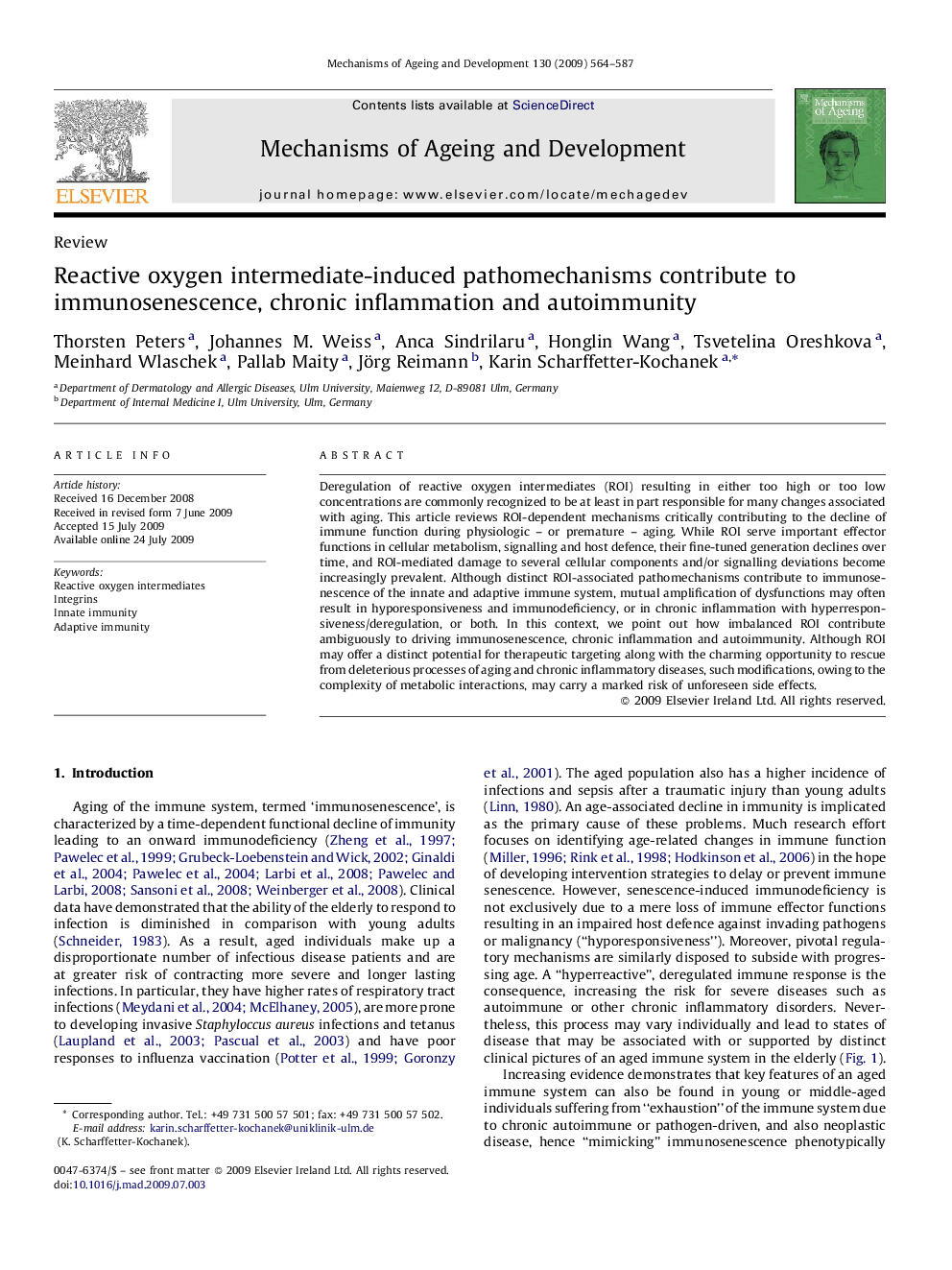| Article ID | Journal | Published Year | Pages | File Type |
|---|---|---|---|---|
| 1919451 | Mechanisms of Ageing and Development | 2009 | 24 Pages |
Deregulation of reactive oxygen intermediates (ROI) resulting in either too high or too low concentrations are commonly recognized to be at least in part responsible for many changes associated with aging. This article reviews ROI-dependent mechanisms critically contributing to the decline of immune function during physiologic – or premature – aging. While ROI serve important effector functions in cellular metabolism, signalling and host defence, their fine-tuned generation declines over time, and ROI-mediated damage to several cellular components and/or signalling deviations become increasingly prevalent. Although distinct ROI-associated pathomechanisms contribute to immunosenescence of the innate and adaptive immune system, mutual amplification of dysfunctions may often result in hyporesponsiveness and immunodeficiency, or in chronic inflammation with hyperresponsiveness/deregulation, or both. In this context, we point out how imbalanced ROI contribute ambiguously to driving immunosenescence, chronic inflammation and autoimmunity. Although ROI may offer a distinct potential for therapeutic targeting along with the charming opportunity to rescue from deleterious processes of aging and chronic inflammatory diseases, such modifications, owing to the complexity of metabolic interactions, may carry a marked risk of unforeseen side effects.
